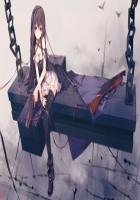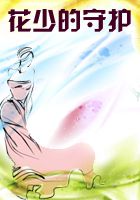Her husband (as I sat facing them both),with his thin bony nose,and a perfectly bloodless,narrow physiognomy clamped together as it were by short formal side-whiskers,had nothing of Sir Leicester Dedlock's "grand air"and courtly solemnity.He belonged to the haute bourgeoisie only,and was a banker,with whom a modest credit had been opened for my needs.He was such an ardent--no,such a frozen-up,mummified Royalist that he used in current conversation turns of speech contemporary,I should say,with the good Henri Quatre;and when talking of money matters reckoned not in francs,like the common,godless herd of post-Revolutionary Frenchmen,but in obsolete and forgotten ecus--ecus of all money units in the world!--as though Louis Quatorze were still promenading in royal splendour the gardens of Versailles,and Monsieur de Colbert busy with the direction of maritime affairs.You must admit that in a banker of the nineteenth century it was a quaint idiosyncrasy.Luckily in the counting-house (it occupied part of the ground floor of the Delestang town residence,in a silent,shady street)the accounts were kept in modern money,so that I never had any difficulty in making my wants known to the grave,low-voiced,decorous,Legitimist (Isuppose)clerks,sitting in the perpetual gloom of heavily barred windows behind the sombre,ancient counters,beneath lofty ceilings with heavily moulded cornices.I always felt on going out as though I had been in the temple of some very dignified but completely temporal religion.And it was generally on these occasions that under the great carriage gateway Lady Ded--I mean Madame Delestang,catching sight of my raised hat,would beckon me with an amiable imperiousness to the side of the carriage,and suggest with an air of amused nonchalance,"Venez donc faire un tour avec nous,"to which the husband would add an encouraging "C'est ca.Allons,montez,jeune homme."He questioned me sometimes,significantly but with perfect tact and delicacy,as to the way I employed my time,and never failed to express the hope that I wrote regularly to my "honoured uncle."I made no secret of the way I employed my time,and I rather fancy that my artless tales of the pilots and so on entertained Madame Delestang,so far as that ineffable woman could be entertained by the prattle of a youngster very full of his new experience amongst strange men and strange sensations.She expressed no opinions,and talked to me very little;yet her portrait hangs in the gallery of my intimate memories,fixed there by a short and fleeting episode.One day,after putting me down at the corner of a street,she offered me her hand,and detained me by a slight pressure,for a moment.While the husband sat motionless and looking straight before him,she leaned forward in the carriage to say,with just a shade of warning in her leisurely tone:"Il faut,cependant,faire attention a ne pas gater sa vie."I had never seen her face so close to mine before.She made my heart beat,and caused me to remain thoughtful for a whole evening.
Certainly one must,after all,take care not to spoil one's life.
But she did not know--nobody could know--how impossible that danger seemed to me.
Chapter VII.
Can the transports of first love be calmed,checked,turned to a cold suspicion of the future by a grave quotation from a work on Political Economy?I ask--is it conceivable?Is it possible?
Would it be right?With my feet on the very shores of the sea and about to embrace my blue-eyed dream,what could a good-natured warning as to spoiling one's life mean to my youthful passion?It was the most unexpected and the last too of the many warnings I had received.It sounded to me very bizarre--and,uttered as it was in the very presence of my enchantress,like the voice of folly,the voice of ignorance.But I was not so callous or so stupid as not to recognise there also the voice of kindness.And then the vagueness of the warning--because what can be the meaning of the phrase:to spoil one's life?--arrested one's attention by its air of wise profundity.At any rate,as I have said before,the words of la belle Madame Delestang made me thoughtful for a whole evening.I tried to understand and tried in vain,not having any notion of life as an enterprise that could be mismanaged.But I left off being thoughtful shortly before midnight,at which hour,haunted by no ghosts of the past and by no visions of the future,I walked down the quay of the Vieux Port to join the pilot-boat of my friends.I knew where she would be waiting for her crew,in the little bit of a canal behind the Fort at the entrance of the harbour.The deserted quays looked very white and dry in the moonlight and as if frost-bound in the sharp air of that December night.A prowler or two slunk by noiselessly;a custom-house guard,soldier-like,a sword by his side,paced close under the bowsprits of the long row of ships moored bows on opposite the long,slightly curved,continuous flat wall of the tall houses that seemed to be one immense abandoned building with innumerable windows shuttered closely.Only here and there a small dingy cafe for sailors cast a yellow gleam on the bluish sheen of the flagstones.Passing by,one heard a deep murmur of voices inside--nothing more.How quiet everything was at the end of the quays on the last night on which I went out for a service cruise as a guest of the Marseilles pilots!Not a footstep,except my own,not a sigh,not a whispering echo of the usual revelry going on in the narrow unspeakable lanes of the Old Town reached my ear--and suddenly,with a terrific jingling rattle of iron and glass,the omnibus of the Jolliette on its last journey swung round the corner of the dead wall which faces across the paved road the characteristic angular mass of the Fort St.Jean.Three horses trotted abreast with the clatter of hoofs on the granite setts,and the yellow,uproarious machine jolted violently behind them,fantastic,lighted up,perfectly empty and with the driver apparently asleep on his swaying perch above that amazing racket.I flattened myself against the wall and gasped.It was a stunning experience.Then after staggering on a few paces in the shadow of the Fort casting a darkness more intense than that of a clouded night upon the canal,I saw the tiny light of a lantern standing on the quay,and became aware of muffled figures making towards it from various directions.Pilots of the Third Company hastening to embark.Too sleepy to be talkative they step on board in silence.But a few low grunts and an enormous yawn are heard.Somebody even ejaculates:"Ah!Coquin de sort!"and sighs wearily at his hard fate.
The patron of the Third Company (there were five companies of pilots at that time,I believe)is the brother-in-law of my friend Solary (Baptistin),a broad-shouldered,deep-chested man of forty,with a keen,frank glance which always seeks your eyes.
He greets me by a low,hearty,"He,l'ami.Comment va?"With his clipped moustache and massive open face,energetic and at the same time placid in expression,he is a fine specimen of the southerner of the calm type.For there is such a type in which the volatile southern passion is transmuted into solid force.He is fair,but no one could mistake him for a man of the north even by the dim gleam of the lantern standing on the quay.He is worth a dozen of your ordinary Normans or Bretons,but then,in the whole immense sweep of the Mediterranean shores,you could not find half a dozen men of his stamp.
Standing by the tiller,he pulls out his watch from under a thick jacket and bends his head over it in the light cast into the boat.Time's up.His pleasant voice commands in a quiet undertone "Larguez."A suddenly projected arm snatches the lantern off the quay--and,warped along by a line at first,then with the regular tug of four heavy sweeps in the bow,the big half-decked boat full of men glides out of the black breathless shadow of the Fort.The open water of the avant-port glitters under the moon as if sown over with millions of sequins,and the long white breakwater shines like a thick bar of solid silver.
With a quick rattle of blocks and one single silky swish,the sail is filled by a little breeze keen enough to have come straight down from the frozen moon,and the boat,after the clatter of the hauled-in sweeps,seems to stand at rest,surrounded by a mysterious whispering so faint and unearthly that it may be the rustling of the brilliant,over-powering moonrays breaking like a rain-shower upon the hard,smooth,shadowless sea.
I may well remember that last night spent with the pilots of the Third Company.I have known the spell of moonlight since,on various seas and coasts--coasts of forests,of rocks,of sand dunes--but no magic so perfect in its revelation of unsuspected character,as though one were allowed to look upon the mystic nature of material things.For hours I suppose no word was spoken in that boat.The pilots seated in two rows facing each other dozed with their arms folded and their chins resting upon their breasts.They displayed a great variety of caps:cloth,wool,leather,peaks,ear-flaps,tassels,with a picturesque round beret or two pulled down over the brows;and one grandfather,with a shaved,bony face and a great beak of a nose,had a cloak with a hood which made him look in our midst like a cowled monk being carried off goodness knows where by that silent company of seamen--quiet enough to be dead.
My fingers itched for the tiller and in due course my friend,the patron,surrendered it to me in the same spirit in which the family coachman lets a boy hold the reins on an easy bit of road.
There was a great solitude around us;the islets ahead,Monte Cristo and the Chateau d'If in full light,seemed to float towards us--so steady,so imperceptible was the progress of our boat."Keep her in the furrow of the moon,"the patron directed me in a quiet murmur,sitting down ponderously in the stern-sheets and reaching for his pipe.
The pilot station in weather like this was only a mile or two to the westward of the islets;and presently,as we approached the spot,the boat we were going to relieve swam into our view suddenly,on her way home,cutting black and sinister into the wake of the moon under a sable wing,while to them our sail must have been a vision of white and dazzling radiance.Without altering the course a hair's-breadth we slipped by each other within an oar's-length.A drawling sardonic hail came out of her.Instantly,as if by magic,our dozing pilots got on their feet in a body.An incredible babel of bantering shouts burst out,a jocular,passionate,voluble chatter,which lasted till the boats were stern to stern,theirs all bright now and with a shining sail to our eyes,we turned all black to their vision,and drawing away from them under a sable wing.That extraordinary uproar died away almost as suddenly as it had begun;first one had enough of it and sat down,then another,then three or four together,and when all had left off with mutters and growling half-laughs the sound of hearty chuckling became audible,persistent,unnoticed.The cowled grandfather was very much entertained somewhere within his hood.
He had not joined in the shouting of jokes,neither had he moved the least bit.He had remained quietly in his place against the foot of the mast.I had been given to understand long before that he had the rating of a second-class able seaman (matelot leger)in the fleet which sailed from Toulon for the conquest of Algeria in the year of grace 1830.And,indeed,I had seen and examined one of the buttons of his old brown patched coat,the only brass button of the miscellaneous lot,flat and thin,with the words Equipages de ligne engraved on it.That sort of button,I believe,went out with the last of the French Bourbons.
"I preserved it from the time of my Navy Service,"he explained,nodding rapidly his frail,vulture-like head.It was not very likely that he had picked up that relic in the street.He looked certainly old enough to have fought at Trafalgar--or at any rate to have played his little part there as a powder-monkey.Shortly after we had been introduced he had informed me in a Franco-Provencal jargon,mumbling tremulously with his toothless jaws,that when he was a "shaver no higher than that"he had seen the Emperor Napoleon returning from Elba.It was at night,he narrated vaguely,without animation,at a spot between Frejus and Antibes in the open country.A big fire had been lit at the side of the cross-roads.The population from several villages had collected there,old and young--down to the very children in arms,because the women had refused to stay at home.Tall soldiers wearing high,hairy caps,stood in a circle facing the people silently,and their stern eyes and big moustaches were enough to make everybody keep at a distance.He,"being an impudent little shaver,"wriggled out of the crowd,creeping on his hands and knees as near as he dared to the grenadiers'legs,and peeping through discovered standing perfectly still in the light of the fire "a little fat fellow in a three-cornered hat,buttoned up in a long straight coat,with a big pale face,inclined on one shoulder,looking something like a priest.His hands were clasped behind his back.It appears that this was the Emperor,"the Ancient commented with a faint sigh.He was staring from the ground with all his might,when "my poor father,"who had been searching for his boy frantically everywhere,pounced upon him and hauled him away by the ear.
The tale seems an authentic recollection.He related it to me many times,using the very same words.The grandfather honoured me by a special and somewhat embarrassing predilection.Extremes touch.He was the oldest member by a long way in that Company,and I was,if I may say so,its temporarily adopted baby.He had been a pilot longer than any man in the boat could remember;thirty--forty years.He did not seem certain himself,but it could be found out,he suggested,in the archives of the Pilot-office.He had been pensioned off years before,but he went out from force of habit;and,as my friend the patron of the Company once confided to me in a whisper,"the old chap did no harm.He was not in the way."They treated him with rough deference.One and another would address some insignificant remark to him now and again,but nobody really took any notice of what he had to say.He had survived his strength,his usefulness,his very wisdom.He wore long,green,worsted stockings,pulled up above the knee over his trousers,a sort of woollen nightcap on his hairless cranium,and wooden clogs on his feet.Without his hooded cloak he looked like a peasant.Half a dozen hands would be extended to help him on board,but afterwards he was left pretty much to his own thoughts.Of course he never did any work,except,perhaps,to cast off some rope when hailed:"He,l'Ancien!let go the halyards there,at your hand"--or some such request of an easy kind.
No one took notice in any way of the chuckling within the shadow of the hood.He kept it up for a long time with intense enjoyment.Obviously he had preserved intact the innocence of mind which is easily amused.But when his hilarity had exhausted itself,he made a professional remark in a self-assertive but quavering voice:
"Can't expect much work on a night like this."No one took it up.It was a mere truism.Nothing under canvas could be expected to make a port on such an idle night of dreamy splendour and spiritual stillness.We would have to glide idly to and fro,keeping our station within the appointed bearings,and,unless a fresh breeze sprang up with the dawn,we would land before sunrise on a small islet that,within two miles of us,shone like a lump of frozen moonlight,to "break a crust and take a pull at the wine bottle."I was familiar with the procedure.
The stout boat emptied of her crowd would nestle her buoyant,capable side against the very rock--such is the perfectly smooth amenity of the classic sea when in a gentle mood.The crust broken,and the mouthful of wine swallowed--it was literally no more than that with this abstemious race--the pilots would pass the time stamping their feet on the slabs of sea-salted stone and blowing into their nipped fingers.One or two misanthropists would sit apart perched on boulders like man-like sea-fowl of solitary habits;the sociably disposed would gossip scandalously in little gesticulating knots;and there would be perpetually one or another of my hosts taking aim at the empty horizon with the long,brass tube of the telescope,a heavy,murderous-looking piece of collective property,everlastingly changing hands with brandishing and levelling movements.Then about noon (it was a short turn of duty--the long turn lasted twenty-four hours)another boatful of pilots would relieve us--and we should steer for the old Phoenician port,dominated,watched over from the ridge of a dust-grey arid hill by the red-and-white-striped pile of the Notre Dame de la Garde.
All this came to pass as I had foreseen in the fullness of my very recent experience.But also something not foreseen by me did happen,something which causes me to remember my last outing with the pilots.It was on this occasion that my hand touched,for the first time,the side of an English ship.
No fresh breeze had come with the dawn,only the steady little draught got a more keen edge on it as the eastern sky became bright and glassy with a clean,colourless light.It was while we were all ashore on the islet that a steamer was picked up by the telescope,a black speck like an insect posed on the hard edge of the offing.She emerged rapidly to her water-line and came on steadily,a slim hull with a long streak of smoke slanting away from the rising sun.We embarked in a hurry,and headed the boat out for our prey,but we hardly moved three miles an hour.
She was a big,high-class cargo-steamer of a type that is to be met on the sea no more,black hull,with low,white super-structures,powerfully rigged with three masts and a lot of yards on the fore;two hands at her enormous wheel--steam steering-gear was not a matter of course in these days--and with them on the bridge three others,bulky in thick blue jackets,ruddy-faced,muffled up,with peaked caps--I suppose all her officers.There are ships I have met more than once and known well by sight whose names I have forgotten;but the name of that ship seen once so many years ago in the clear flush of a cold pale sunrise I have not forgotten.How could I--the first English ship on whose side I ever laid my hand!The name--I read it letter by letter on the bow--was "James Westoll."Not very romantic you will say.The name of a very considerable,well-known and universally respected North-country shipowner,I believe.James Westoll!What better name could an honourable hard-working ship have?To me the very grouping of the letters is alive with the romantic feeling of her reality as I saw her floating motionless,and borrowing an ideal grace from the austere purity of the light.
We were then very near her and,on a sudden impulse,I volunteered to pull bow in the dinghy which shoved off at once to put the pilot on board while our boat,fanned by the faint air which had attended us all through the night,went on gliding gently past the black glistening length of the ship.A few strokes brought us alongside,and it was then that,for the very first time in my life,I heard myself addressed in English--the speech of my secret choice,of my future,of long friendships,of the deepest affections,of hours of toil and hours of ease,and of solitary hours too,of books read,of thoughts pursued,of remembered emotions--of my very dreams!And if (after being thus fashioned by it in that part of me which cannot decay)I dare not claim it aloud as my own,then,at any rate the speech of my children.Thus small events grow memorable by the passage of time.As to the quality of the address itself I cannot say it was very striking.Too short for eloquence and devoid of all charm of tone,it consisted precisely of the three words "Look out there,"growled out huskily above my head.
It proceeded from a big fat fellow (he had an obtrusive,hairy double chin)in a blue woollen shirt and roomy breeches pulled up very high,even to the level of his breast-bone,by a pair of braces quite exposed to public view.As where he stood there was no bulwark but only a rail and stanchions I was able to take in at a glance the whole of his voluminous person from his feet to the high crown of his soft black hat,which sat like an absurd flanged cone on his big head.The grotesque and massive space of that deck hand (I suppose he was that--very likely the lamp-trimmer)surprised me very much.My course of reading,of dreaming and longing for the sea had not prepared me for a sea-brother of that sort.I never met again a figure in the least like his except in the illustrations to Mr.W.W.Jacobs'most entertaining tales of barges and coasters;but the inspired talent of Mr.Jacobs for poking endless fun at poor,innocent sailors in a prose which,however extravagant in its felicitous invention,is always artistically adjusted to observed truth,was not yet.Perhaps Mr.Jacobs himself was not yet.I fancy that,at most,if he had made his nurse laugh it was about all he had achieved at that early date.
Therefore,I repeat,other disabilities apart,I could not have been prepared for the sight of that husky old porpoise.The object of his concise address was to call my attention to a rope which he incontinently flung down for me to catch.I caught it,though it was not really necessary,the ship having no way on her by that time.Then everything went on very swiftly.The dinghy came with a slight bump against the steamer's side,the pilot,grabbing the rope ladder,had scrambled halfway up before I knew that our task of boarding was done;the harsh,muffled clanging of the engine-room telegraph struck my ear through the iron plate;my companion in the dinghy was urging me to "shove off--push hard";and when I bore against the smooth flank of the first English ship I ever touched in my life,I felt it already throbbing under my open palm.
Her head swung a little to the west,pointing towards the miniature lighthouse of the Jolliette breakwater,far away there,hardly distinguishable against the land.The dinghy danced a squashy,splashy jig in the wash of the wake and turning in my seat I followed the "James Westoll"with my eyes.Before she had gone in a quarter of a mile she hoisted her flag as the harbour regulations prescribe for arriving and departing ships.I saw it suddenly flicker and stream out on the flagstaff.The Red Ensign!In the pellucid,colourless atmosphere bathing the drab and grey masses of that southern land,the livid islets,the sea of pale glassy blue under the pale glassy sky of that cold sunrise,it was as far as the eye could reach the only spot of ardent colour--flame-like,intense,and presently as minute as the tiny red spark the concentrated reflection of a great fire kindles in the clear heart of a globe of crystal.The Red Ensign--the symbolic,protecting warm bit of bunting flung wide upon the seas,and destined for so many years to be the only roof over my head.















